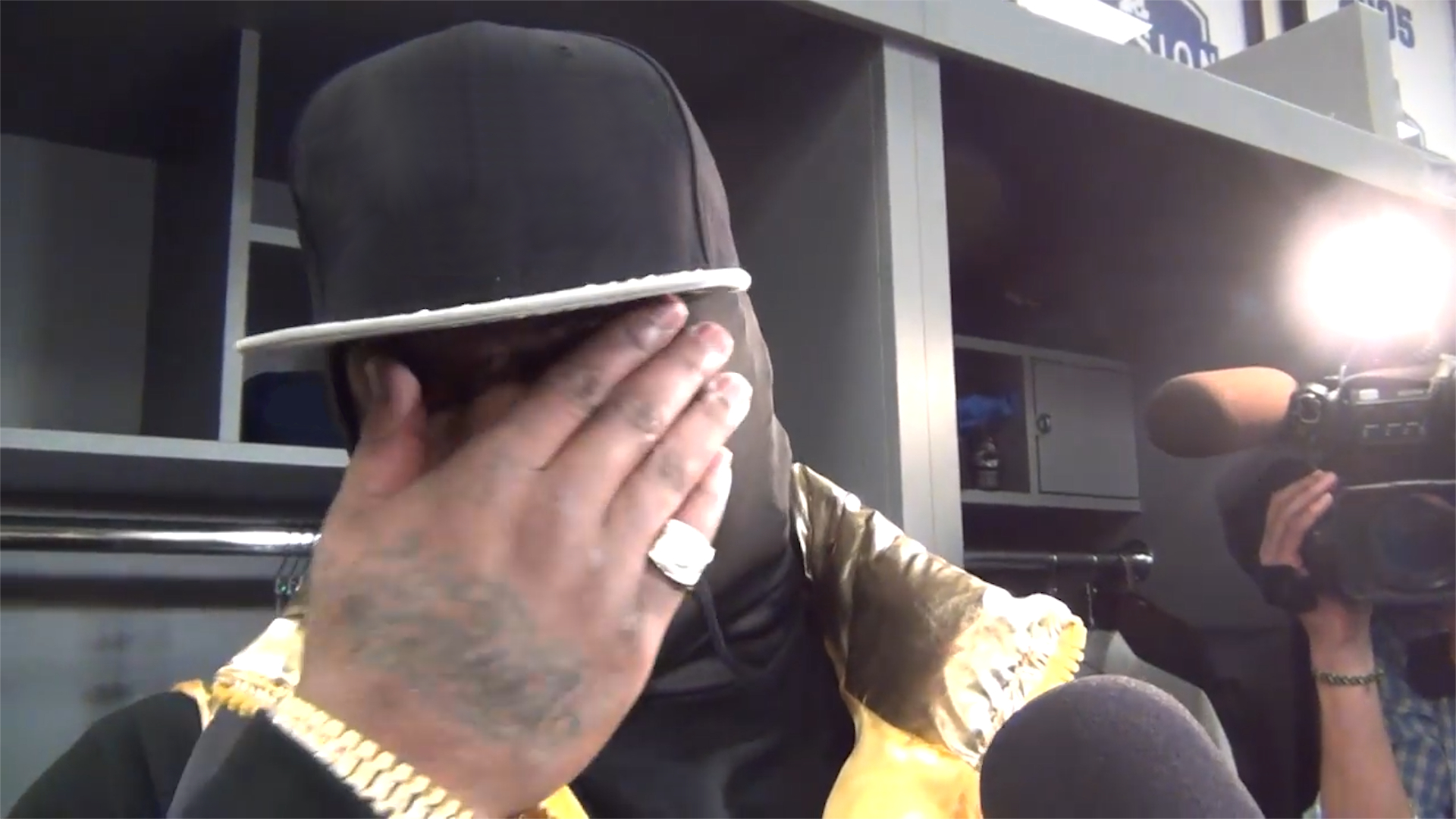Marshawn Lynch: A History
Director/ David Shields
Watched on Kanopy
Rating 4.5/5
I initially had no interest in watching a film about the life of the Seattle Seahawks running back. And I still don’t. But as it turned out, this film is about a very specific part of the life of Marshawn Lynch, his life of words and silence, and in that singular focus it ends up being a film about the very recent history of Black Lives Matter, the endemic prevalence of media racism, and the ways in which Black athletes are expected to fit the stereotypes and the behavioral modes assigned to them by a sports industrial complex that believes they own them.
The film, by the author, essayist and editor David Shields, is not so much directed as compiled. Shields constructed the entire film from video snippets gleaned from the Internet, including movies, TV series, talk shows, highlight packages, and early local broadcasts of Lynch as a promising young football star in Oakland.
It’s an act of biographical bricolage, fast-paced and dynamic, in which we watch an outgoing, thoughtful, fun-loving, self-confident young man continually admonished by an establishment that expected him to play by their rules. Which of course he did, on the field.
But it is off the field, living his celebrity-built lifestyle, with his penchant for glitz and girls and fashion and freewheeling commentary, where the rules couldn’t touch him. Yet, he became such a target for criticism and insults by White and Black sportswriters and talk show hosts that he decided to do something that both removed the bullseye from his back and infuriated his critics even more. In his now-famous post-game interviews, he simply stopped answering questions. Instead, he uttered a few stock phrases to every question, “Thanks for asking” or “I’m thankful.” Both in locker room interviews and the contractually-required appearances in the post-game press room, his silent protests turned the spotlight around to focus on the idiotic theatrics of the media asking the same pointless, superficial questions over and over again. Lynch effectively ended, at least for himself, a symbiosis that had long ago proved toxic and meaningless.
Marshawn Lynch: A History will disappoint football fans who come for the highlights, although the important ones show up. There are replays of the famous earthquake-level touchdown run, and the agonizing defeat in the Super Bowl when the Seahawks’ coach called for a pass play (intercepted) instead of a hand-off to Lynch on the Patriots’ one-foot line. That’s a tough one to revisit, even for me, a fair-weather Seattle fan of the highest order. But it’s worth reviewing the implications. Both his teammates and Lynch himself considered the call a deliberate move to deny Lynch the game-winning score. He was a football player on the field, and a human being entitled to his own life and thoughts and opinions off the field. The victory touchdown would have validated his legacy as a player.
And validation, as we’ve come to understand in this summer of protests of the police murder of George Floyd, is a hard thing to come by for a Black man.

